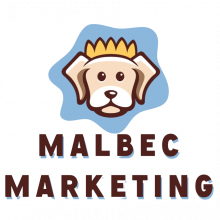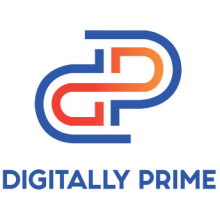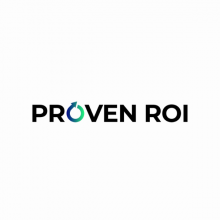Explore Top Online Reputation Management Companies in United States
Use the advanced filter to find companies near you or refine the results Last updated in: December, 2025
BHMarketer.com enhances brand visibility across AI platforms through strategic positioning and clear, credible digital presence.

A Group Consulting Verified Company
Boston, United States Head office in: United Kingdom
A Group Consulting is an international marketing and consulting company that serves clients across the globe.
Najera Design + Marketing offers web, SEO, social, photo, and video services in Macon, GA—serving Middle Georgia and beyond.
Your online reputation management solution starts here.
Services:
We are a bespoke technological innovator and digital trailblazer.
VIS Mountain Marketing & Advertising is A Leading Digital Marketing Agency That Caters IT Solutions To Healthcare and Law, and Professional Business.
Trending.Marketing helps brands get noticed online with content that drives engagement and boosts visibility.
Reach millions effortlessly with easy, affordable press release distribution that drives high-quality traffic.
We help brands grow through data-backed marketing strategies that get real results. No fluff, just proven solutions that work.
US Book Marketing boosts author visibility with Amazon SEO, PRs, reviews, and social media campaigns, connecting books to the right readers.
MRMSoft Inc – Software Development Company in houston. We are providing web & app development, digital marketing including SEO, PPC, social media.
Fountain Hills Technologies is your trusted Managed Security Service Provider for IT and Cybersecurity solutions.
our digital success is our mission. With tailored strategies and expert execution, we elevate your brand's online presence, driving results.
Affixwebsolution as the top digital marketing agency.
Streamline Success. Outsource Digital Marketing.
Transforming businesses with HubSpot precision, e-commerce excellence, bespoke web solutions, and strategic digital marketing mastery.
We are a Web Design and Marketing Agency
Welcome to JB FAM solution. We’re your creative partners, dedicated to bringing your ideas to life. Let’s dream big together and make digital dreams.
GrowUp2X offers IT solutions like web and app development, digital marketing, SEO, UI/UX design, lead generation, and content writing.
Ideate, Design, Succeed – Your Digital Journey Starts Here
New Age Digital Media and Marketing Company
Proven ROI is a HubSpot consulting agency that serves businesses and companies in Austin and the surrounding locations.
Webzmasters, a pioneering web design and digital marketing agency, boasts an impressive 25-year legacy in the digital realm
Digital Encyclopedia specializes in creating well-researched, impactful content for Wikipedia page creation; our expert team ensures your work.
Filter Online Reputation Management Companies in United States by Cities
Find the right tech company near you or from a specific city. Some of the best companies might be located in smaller cities.
Find more Online Reputation Management companies around the world
TechBehemoths is the world's most advanced and user-friendly platform to match IT Companies with real clients without hustle.
ICT in the United States: General Profile and Insights
The United States has probably the most advanced software and information technology (IT) services industry in the world. More than 40 percent of the $5 trillion global IT market is in North America, primarily the United States. The industry accounts for $2.1 trillion of U.S. value-added GDP (more than 10 percent of the national economy) and 702.276 jobs. According to CompTIA, there are more than 700,000 software and IT services companies in the United States.
The average net salary of a web developer in the US is around $82,532 annually. On the other hand, the hourly rate is nearly $33.47, which makes it one of the best-paid jobs in the world within the IT industry.
Why Should You Work With American Web & Software Development Companies
U.S. software development companies operate in a mature, harmonized market and have a reputation for producing reliable and effective solutions that quickly accelerate to the marketplace. International companies in the industry have shown interest in the U.S. market because of its strong intellectual property rights laws and enforcement. U.S. companies lead the world's packaged and custom-software markets and are competitive in nearly all other market segments with a stable overseas market share.
What You Should Be Aware of When Working With a US-based ICT Company
Having a large IT market has both advantages and disadvantages. While offering a wider variety of US IT companies to choose from is one of the biggest advantages the U.S. has to offer, the challenge for potential clients and partners of the U.S.-based web & IT companies is that the industry development is not equally distributed across all states and cities. For example, many tech companies are relocating to Texas from Silicon Valley. This is why it’s good to have in mind the most important U.S. IT hubs and focus on choosing the most suitable one depending on your needs.
How Reliable are US-based IT Companies
Based on a report delivered by CompTIA in 2020, which is still relevant for 2025, the changes in the global IT market that make competition in this area tougher, U.S. companies will focus more on three development pillars:
- Training and Certification of professionals in their existing tech skills
- Training and Certification of professionals in new tech skills
- Career growth and project management.
This means that the market is saturated with the workforce, and there is a small probability that companies will increase their hiring rate for new professionals. However, intensive and extensive skills development of U.S. tech professionals will increase the capacity and attractiveness of U.S. IT companies and web agencies. Additionally, this will improve the already well-developed abilities to deliver high-end products and services in the IT field.
How Does the US IT Industry Relate to the Neighboring Countries
Considering that the US has probably the most developed IT infrastructure, the industry will keep its position for at least 3 years. On the other hand, the rising numbers of IT companies from Canada and Mexico come in contrast with what US companies have to offer. In other words, clients still have to choose between US companies and neighboring countries as the offers differ in quality and ways of executing projects.
Overall, the US IT industry is in leading positions in different sectors, and combined with an authentic business culture, will probably continue to keep its attractiveness. Although companies from the U.S. are flexible and are always adjusting to market requirements, the global market still remains unpredictable, which may lead to significant changes in the future.
US Tech Industry Outlook for 2025 and Beyond
The US is still leading the world with its cutting-edge technologies, despite some narratives. The expected revenue for the market of IT Services in the US is $563.94 billion by 2025, with a CAGR of 3.73% from 2025-2030, according to Statista. The biggest segment of this segment is IT Outsourcing, reaching $218.02 billion by the same year. This sector has an increased demand for solutions in cloud computing and cybersecurity services.
Artificial Intelligence will influence the tech sector in the US, with only the Generative AI contribution to GDP of $7 trillion in the next 10 years, and it can save up to $1.4 billion for the federal government.
The US is keeping its position in scientific research, graduate education, AI firms, and competitiveness. The US tech sector’s future focuses include AI, increasing cybersecurity & cloud computing.
What is Online Reputation Management and what are its benefits for your projects?
Online reputation management (ORM) is the practice of strategically controlling and enhancing the way a brand, business, or individual is perceived online. It plays a vital role in building customer trust, establishing industry credibility, and driving sales. Key aspects of ORM include effectively responding to negative feedback, getting positive reviews, and closely monitoring brand mentions on various platforms.
Are you aware that 75% of businesses consider online reviews, comments, and forum posts crucial for their financial stability and reputation?
Why online reputation management is important for your business
-
The way your brand appears online can significantly impact purchasing decisions.
In fact, studies show that 59% of shoppers conduct online research before making a purchase, and a whopping 97% of consumers consult product reviews before buying. This means that if your brand doesn't present itself positively online, you risk losing potential customers.
-
Managing negative reviews is essential for any business.
While negative reviews are unavoidable, actively monitoring and responding to them can have a positive impact on your online reputation. Research has shown that customers who had their complaints addressed within five minutes on social media were more likely to continue making purchases with the company in the future.
-
It provides valuable feedback.
Customer reviews offer valuable feedback that can help identify and address potential issues in your products, services, or overall customer experience. By analyzing and reading through multiple reviews, you can gather useful insights that highlight recurring complaints and guide improvements.
Factors that Contribute to ORM
While every business uses a unique mix to maintain its online reputation, effective ORM should involve combining the following strategies:
-
Owned media – Experiences of both employees and customers, user-generated material, assessments, online seminars, and brand-generated content.
-
Paid media – Lead generation, affiliate programs, native advertising, and sponsored social media postings.
-
Earned media – Public relations, media relations, and influencer marketing.
-
Shared media – Community service and collaborations, co-branding campaigns, and organic social media content.
What is the role of online brand reputation manager
A brand reputation manager maintains a positive online image for a brand. They utilize various online resources to monitor and influence public perception of the brand. This involves analyzing reviews, tracking online mentions, and measuring brand sentiment. By actively managing the brand's online presence, they ensure that the brand maintains a positive reputation among its audience.
TechBehemoths lists over 243 online reputation management service providers. Use the smart filters to find and select the companies you need. You can view their profiles and reach out to them for collaboration or submit your project. The TechBehemoths team will assist you in finding a brand strategy service provider that matches your needs. Lastly, you can find out more about what is online reputation management and how to develop effectively on TechBehemoths blog.






















